Tag: Motivation
Make It Touchable, Belarmino Said

“What motivates people?” – I was asked in a recent interview. The question reminds me of a story back when I worked in prisons. My colleagues and I had been asked to do a mini workshop with the inmates about identity and self-perception.
The key to motivation is to find the right reasons for someone to want to do something.
How on earth were we going to get prisoners engaged in a mandatory session on identity and perception?? I remember we were in the prison’s community area, brainstorming on how we could pull this off, when one of the senior guards said:
“Don’t sweat it. If they don’t want to do something, they won’t. And there’s nothing you can do about it.” His intention wasn’t to discourage us, rather to warn us not to get our hopes up high. It didn’t work – we did get our hopes up!
I remember us thinking: “Okay, so if what this man is saying is true, all we have to do is get the prisoners to want to do the workshop.” We realized that they would do anything we asked them to do, as long as we found a way for them to want to do it.
In fact, this became a guiding principle for our activities during the years we worked with inmates. And we did accomplished some cool stuff, such as plays, holiday parties, gastronomic events, even a meditation retreat!
If you want to motivate someone, make it touchable.
Appeal to their interests, not yours; their values, not yours.
On that particular occasion, we asked an actor friend, Belarmino, to help us. He suggested: “Let’s make it touchable”. So he asked the inmates to take turns in pairs in placing a sheet of tinfoil on each other’s face and to gently mold a mask.
Belarmino asked each one if they recognized themselves in the mask and contrasted their opinion with comments from the group. Et voilà! – thirty inmates having a philosophical conversation about self-perception and identity. Impressive!
We then formed a circle and passed a broomstick around. Everyone pretended it was a different object and the group guessed what it was. This way Belarmino conveyed the idea that when we change our actions, the way others perceive us also changes. Effective and fun!
To this day, when I think of motivation, I remember Belarmino: “Make it touchable!” To make people do things is not to motivate them. That’s to force them. To motivate is to find a way for them to want to do it. And if you can do that… they’ll do anything for you!
Do you know someone who could benefit from Belarmino’s inspiration? Share his story!
The Impact Of Unconventional

The video above got me thinking about the impact of unconventional gestures of generosity on our lives. If you haven’t seen it, please do so – it’s more important than what you’ll read here.
If traumatic events can stick with us forever, acts of generosity fuel our motivation for a lifetime, especially if they’re unconventional and do not conform to typical conduct.
In the video, no one expects a thief – especially a youngster – to be “rewarded”. What strikes me is not that it‘s extreme, but that it doesn’t follow the usual expected behavior.
The effects of unusual kindness go far beyond feelings of gratitude.
Unconventional generosity is a credible way of saying two vital things: I believe in you, and you are worthy of appreciation. There’s nothing more important to say in life than this.
When it comes to self-confidence and self-acceptance, words only go a certain distance. Sometimes, saying “I believe in you” and “You’re outstanding” isn’t enough. Sometimes, you need to show you believe and appreciate.
Much more than words, actions are credible – you can see them, recall them, hang on to them. They’re the fuel of our motivation.
Being unconventionally good makes a difference.
This also applies to our professional network. Things like putting yourself on the line for someone you don’t really know, giving a compliment just because, stopping to notice when no one else does or giving the new guy a place of honor make a huge difference.
Maybe you won’t see the effects of the good you’ve done. Maybe you won’t get the credit you deserve. Maybe you won’t reap the fruits thirty years later. Maybe.
But people like the man in the video just won’t let you forget that being good is not about good rewards. It’s about better people!
Know that all unconventional generosity has an impressive impact. Trust that it reaches beyond the sense of gratitude out on to the sacred fields of self-confidence and recognition. Follow on. Follow on.
Be unconventionally good! It works.
How Do You Get What You Want?
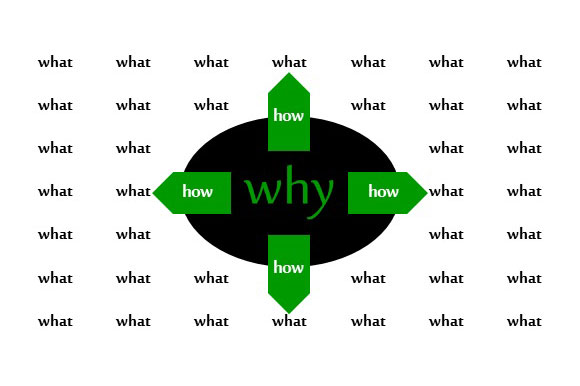
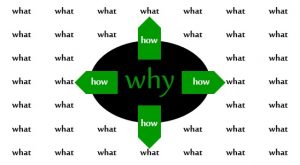
Has it ever happened to you to ask a waiter for something, who says “Sure, no prob”, and then he or she shows up with something different and then runs off, disappearing?
My father in law, Miguel, has a funny comeback for these situations. He got it from one of his law professors in university when he’d get answers to questions he did not ask.
Miguel says he sometimes feels like saying: “Now that you’ve brought me whatever you felt like, could you please bring me what I asked for!” However, I’ve never heard him use this line. I’m guessing he’s too much of an experienced gentleman to answer this way.
Crucial to effective communication and team performance is mastering the art of requests. We practice this in my seminars. The goal is to know what we want, why we want it and how we’ll get it.
With the diagram above, notice differences between needs, wants and requests:
Need = The Problem, Why: It’s a vital element to our wellbeing as humans. Thirst, tranquility and safety are examples. Notice that – physical, psychological or spiritual – we all tend to share similar needs. Here’s a list of common needs.
- Want = The Solution, What: It’s an answer to satisfying a particular need. If you’re thirsty you might want water; if you need some peace you could desire silence; if you need safety you might want a new door lock.
Our wants are the choices we make to respond to our needs.
Notice wants are one of many options. Instead of water you could want a soda; music instead of silence; a Rottweiler, not a lock. Unlike needs, wants are informed by our environment. For ex., the need for clothing can result in wanting the clothes informed by the fashion culture.
- Request = The Strategy, How: It’s the act of petitioning something from someone for the purpose of satisfying a want or a need. Ex: You could ask your partner for water, your colleague to turn down the music, or the landlord for a new lock.
Requests are strategies we use to satisfy our wants and needs.
Notice once again how a request is one of several strategies. You could have decided to get the water yourself, move to a quieter room, or change the lock on your own.
If we confuse the three, we end up requesting things we don’t want and wanting things we don’t need. We confuse problems (needs) with solutions (wants). We neglect the strategies (requests), forget the why (needs) and focus only on the solution (wants).
A tool for when we don’t get what we want: Ask yourself: What is the real problem (the need, why)? Are there other solutions (the wants, what) or better strategies (the requests, how)? Now adapt your wants and requests to meet your needs!
When a request is the best strategy, we want to trigger willingness from the receiver, not denial. We’ll discuss how to do this in following entries. Comments? Questions?
It’s Always My Fault!
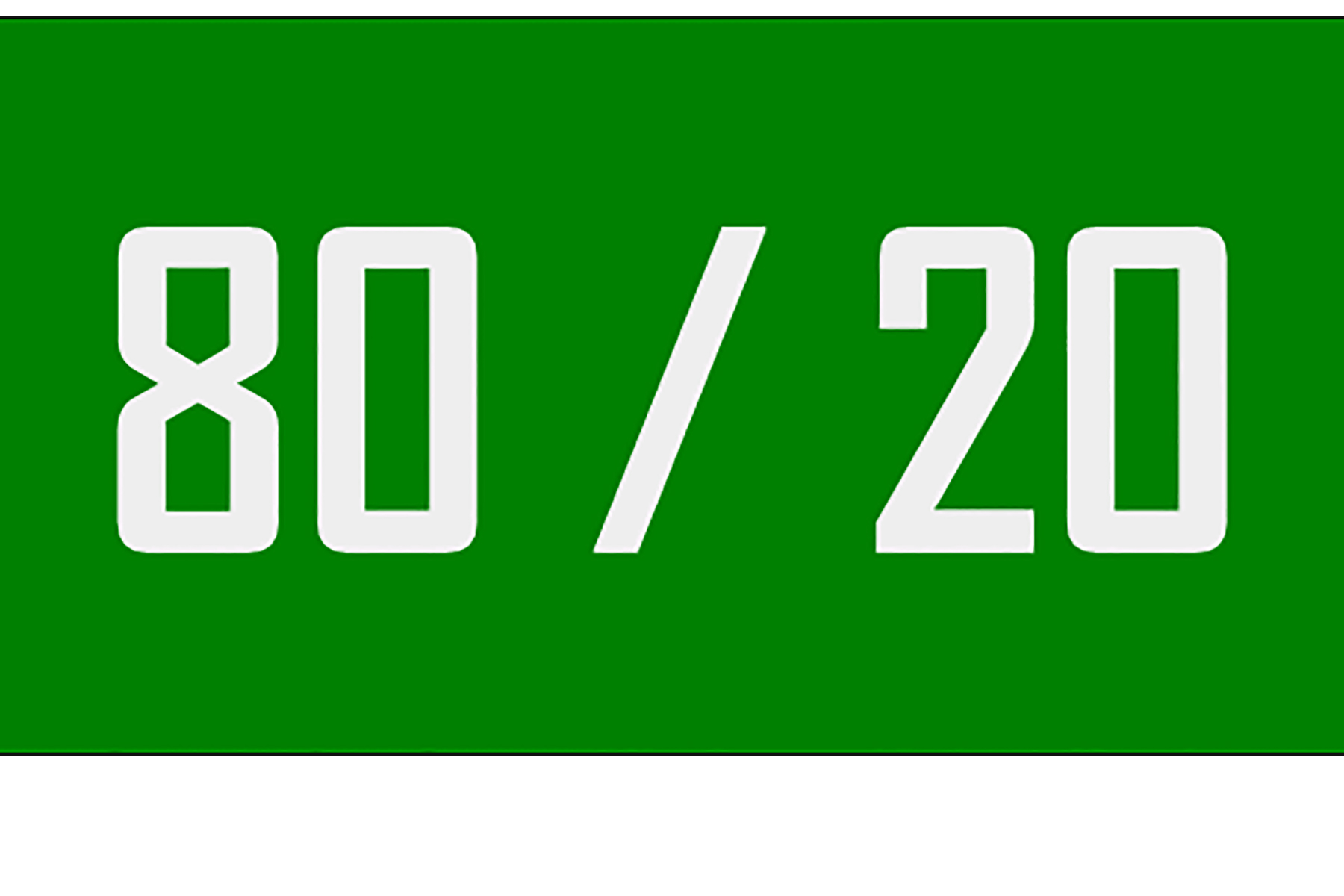
 On Tuesday, a client and I met to discuss a session we’re going to do on relationship management. One of the topics was how the corporation’s managers sometimes can’t stand some of the people they work with. They feel it’s useless and case closed.
On Tuesday, a client and I met to discuss a session we’re going to do on relationship management. One of the topics was how the corporation’s managers sometimes can’t stand some of the people they work with. They feel it’s useless and case closed.
I love this topic, especially when it comes up in my seminars. It’s always interesting to see the look on participants’ faces when I present the commitment ratio of the relationship building system I created: 80% you; 20% the other person. What?!
Yep, that’s the look on their faces. You do 80% of the work and the other person does 20%. “That’s not fair!” — some might say. Relationship management at work is not about fairness (that comes later), it’s about effectiveness.
The ultimate challenge is not
how you relate to others. It’s how you deal with YOU!
Relationships need to function for everyone to get their jobs done. An 80/20 ratio assures your commitment produces functioning results that guarantee performance. “But it doesn’t make sense: the other person is the problem, not me!” — others object.
This reminds me of a story back in my university days. One late night, as I was making my way home, I saw a man literally banging his head against a street post. I kind of recognized him, so I walked up to him.
After a long monologue, I came to learn his tragic story. His wife had left with another man and took the children. His partner was no longer a partner. His business was crumbling. He was drinking… I almost felt sorry for him. But then I didn’t.
It’s a tough lesson: either you take on the responsibility
of being in charge of the events of your life or… you don’t.
When he finally asked if I wasn’t going to say anything, I asked: “You expected people would behave in a certain way, right?” What?! — was the look on his face. Then silence. Then a smile.
“That’s right”, he said. “I’ve blamed everyone around me for everything that has happened to me. That puts the power to lead my life in their hands, not in mine. To be in charge, I need to accept it’s my fault.”
That day, that man began to understand that it will always be up to him to take charge of how relationships affect his life and how he will proceed. He understood that the outcomes of our relationships start with us.
Today, that man leads a fulfilling life — lots of challenges no doubt, but fulfilling. Today, he is an 80/20 man, committed to producing functioning results that guarantee performance. His approach is: regardless of what happens, it’s always my responsibility.
Could this work for you? I’m eager to see how the managers will respond!
The Pyramid Of Fulfillment
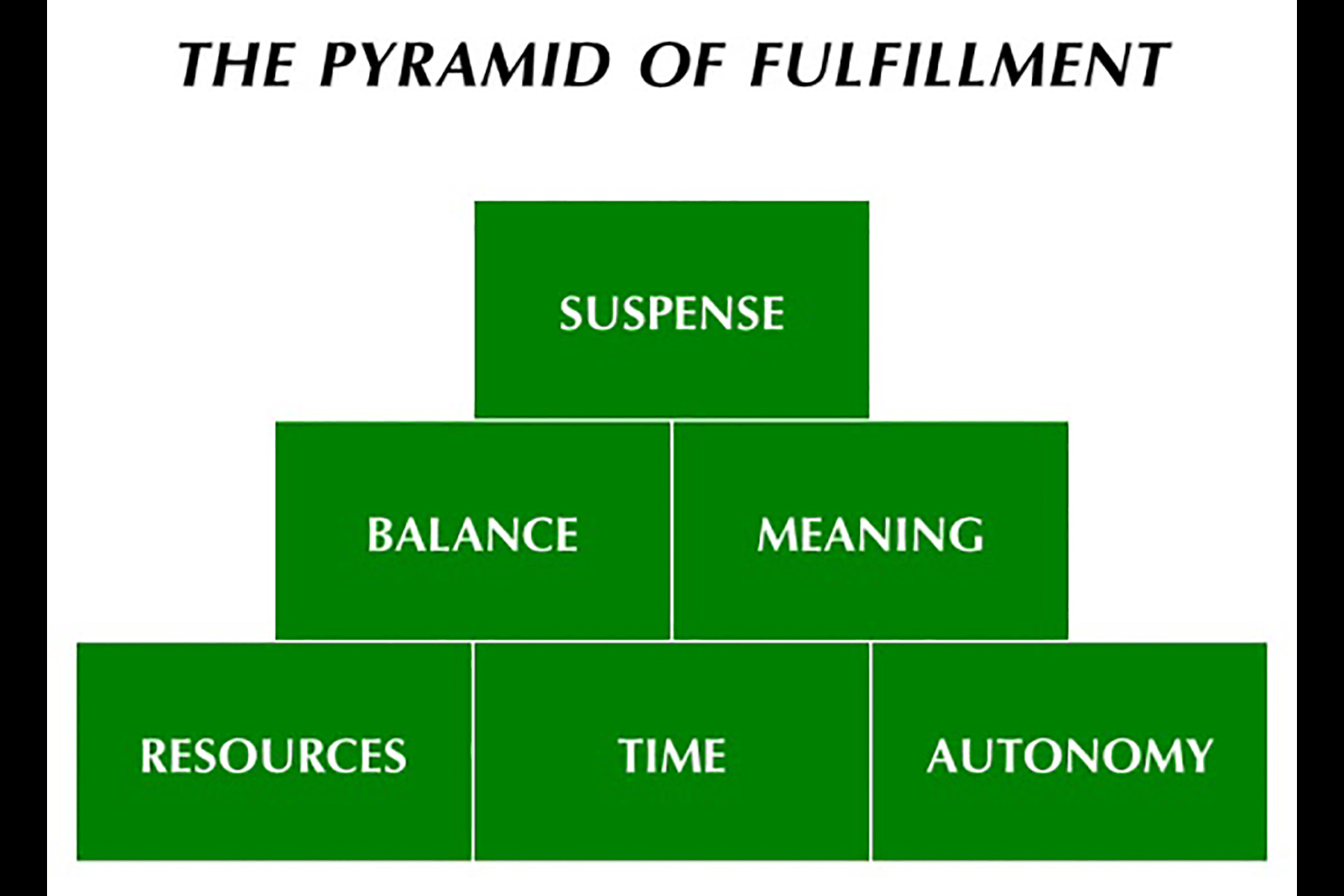
What are the first six words that pop into to your head when you hear the words fulfillment, success or happiness? Before I tell you why, please write them down.
The other day, my friend and fellow coach at IESE Business School, Tony Anagor — Cofounder of LifestyleDMC and Lifestyle Barcelona, companies that specialize in organizing unique events and experiences — was invited to give a talk to MBA students from around the world who were in Barcelona as a part of the University of Manchester’s European Summer Study Programme.
When Tony asked me if I’d like to share the stage with him, I immediately jumped on board: for me students mean the future, and I like being in touch with the future.
During my presentation, I asked the students this same question and shared with them my six words. They describe the decisive pieces to living a fulfilling life. I call it “The Pyramid Of Fulfillment”. Let’s have a look:
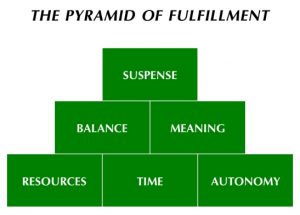
Resources: This includes money, but not predominantly. Seth Godin gets it well in a blogpost:
“Don’t get caught confusing money with security. There are lots of ways to build a life that’s more secure, starting with the stories you tell yourself, the people you surround yourself with and the cost of living you embrace.”
Time: Plenty of resources and no time to use them is not worth much. So, how much time do you have for you? Not for personal obligations apart from work, but time for your thing? I find that sometimes even my free time is booked.
Autonomy: Resources and time are useless if you’re not free to do with them what you desire. In the end, the goal is to live and work like you’re your own boss. Self-determination is a key factor for lasting motivation.
Balance: Juggling the different areas of your life is an art. It can also be your dismay. A fulfilling life is like an orchestra. It’s not enough to play one instrument well. You want all of them to do well and to do it together.
Meaning: With the resources, time and opportunity to live life on your terms and balance in doing so, you’re also going to need meaning. Life needs to make sense. What good is a wonderful orchestra isolated in a soundproof room where no one can hear it?
A life that does not contribute
to something bigger than itself lacks purpose.
Suspense: This is one of my favorites. I wrote about it in a previous post. Fulfillment is not about reaching the finish line. It’s about learning the game, keeping it going and ultimately becoming a game changer! This ongoing process requires excitement and energy. And without suspense, that’s really not possible.
What does your pyramid look like? I’m sure there are other significant pieces we could add. Love to hear about it.
If Ever There’s A Purpose

Who am I? And why am I here? These are questions, specialists say, that assist us in the process of creating our identities. These questions have entertained a great part of my youth and adult life.
My quest to answer them, which somehow always seems to have a sequel, has been intense, exciting and at times unpredicted. Funny enough, meaningful results have come not by way of books or theories, rather by way of experiences and people.
The stories and relationships of life have helped me understand that:
For what matters, we get to choose who we want to be.
And a universal purpose, if there is one, might just be to be together.
If you live in those parts of the planet where August means vacation, you might be enjoying a few days of rest. Out here in sunny southern Spain, my wife and I enjoy the company of unique friends who dedicate themselves to a “universal” purpose.
For them, home is a distinct place called Murtra Galilea, a resort like compound for retreat and tranquility. The purpose you breathe here is rather palpable: kindness.
Here, it quickly becomes obvious that people were made to be kind, to extend warmth, to intensely enjoy the experience of being nice. It’s a wonderful feeling and I wanted to share it.
Kindness, if ever there’s a universal purpose!

